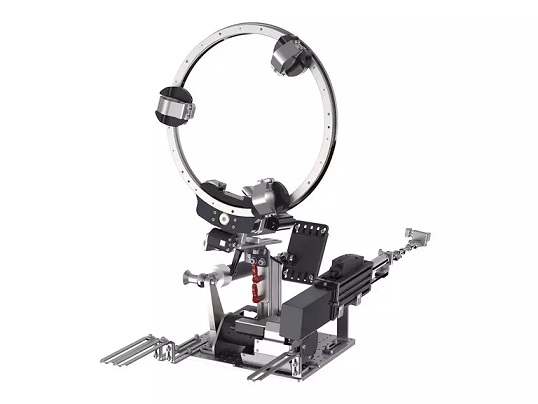The Mcity test facility in Michigan is using human robotic systems to trial driver assist systems
Humanetics and Mcity are taking part in a collaborative project to drive mobility innovation by providing access to active safety testing technologies at the University of Michigan’s Mcity Test Facility for the joint development of advanced software and robots for new mobility applications.
These tools will make it easier for commercial and academic researchers at the Mcity Test Facility to conduct comprehensive and accurate evaluations of emerging autonomous and Advanced Driver Assistance Systems (ADAS) technologies.
“By combining the resources and expertise of Humanetics and Mcity, this partnership will accelerate the development and deployment of connected and automated vehicle technologies,” said Mark Westen, president, Humanetics Safety. “This relationship will contribute to ongoing efforts focused on creating a safer, more efficient and sustainable transport environment.”
Robotic Test Platforms
Humanetics will provide Mcity with a variety of its Active Safety robotic test platforms, which can mimic a range of road users such as pedestrians, cyclists, motorbikes and children. In addition, Humanetics will provide training services and TrackBase Connect, a holistic software system to help manage complex test scenarios and co-ordinate the execution of the different vehicles, traffic lights and pedestrian platforms on the proving ground.
“A major goal of the partnership is to fully integrate Humanetics’ dynamic test system into the Mcity Test Facility environment, which will simplify test setup and support running complex tests more quickly and easily,” said Mcity Managing Director Greg McGuire.
“The most critical part of testing automated systems is safely dealing with other people on the roads – in cars, trucks, buses, on bikes, etc., – and how they use our road network,” McGuire said. “That’s what Humanetics is good at and that’s where we need to be innovative at the MCity academic facility and proving ground if we’re going to improve road safety more broadly.”
In MCity’s home state of Michigan, traffic deaths fell slightly last year but remained stubbornly high at more than 1,100, representing a 15% increase since 2018, according to the Michigan Office of Highway Safety Planning. America’s National Highway Transportation Safety Administration’s latest projection for 2022 fatalities estimated that more than 42,000 people died on US roads last year, down less than 1% compared to 2021.
Safety Assessment Programme
umanetics’ robots will also be incorporated into Mcity’s Safety Assessment Programme, a two-part protocol for testing the safety of automated vehicles before widespread deployment on public roads. The Safety Assessment Program exemplifies the kind of testing that could be conducted using Mcity 2.0. Mcity is adding digital infrastructure to the physical infrastructure of the Mcity Test Facility to create Mcity 2.0, a cloud-based, augmented reality test bed for connected and automated vehicles that will be available to academic researchers nationwide. The National Science Foundation is funding the work.
In addition, the robots could be used inside the Mcity Test Facility to explore infrastructure safety applications as they relate to cities of the future.
Mark Westen says that Humanetics and Mcity are excited about the potential impact of their collaboration on the future of connected and automated vehicles.
“By working together, we are committed to advancing the boundaries of safety testing and supporting the adoption of innovative technologies that will shape the transport landscape for decades to come,” he concludes.
- UK manufacturing steps up to COVID-19 crisis - April 2, 2020
- Clustering Innovation - March 12, 2020
- A Global Monitor - March 6, 2020

